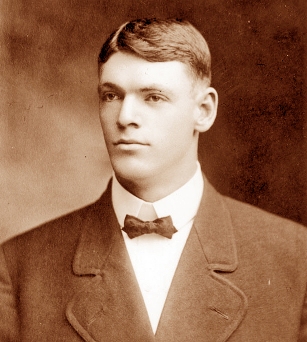Difference between revisions of "Lester Wire:Mormon Inventor"
(Created page with "300px|thumb|alt=Lester Wire Mormon Inventor|right Lester Farnsworth Wire was the inventor of the world’s first electric traffic light. His invention w...") |
(No difference)
|
Revision as of 16:36, 14 February 2014
Lester Farnsworth Wire was the inventor of the world’s first electric traffic light. His invention was first used in Salt Lake City, Utah in 1912. He was a member of The Church of Jesus Christ of Latter-day Saints.
Wire was born on September 3, 1887, in Salt Lake City. He received an appointment to the West Point Military Academy by Senator Reed E. Smoot, but was unable to attend. When he couldn’t afford to finish his study of law at the University of Utah, he joined the police force in Salt Lake City. As head of the department’s first traffic squad in 1912, he was charged to control the chaos on the city’s streets, which included automobiles, horses and buggies, trolley cars, and pedestrians traveling without any right-of-way laws. He wrote the first traffic regulations for Salt Lake City and appointed patrolmen to direct traffic at the busy Main Street and 200 South intersection.
Wire wanted to find a better method to control traffic other than make his patrolmen stand long hours in the center of a busy intersection under varying weather conditions. With Matthew 5:15 as his inspiration (“Neither do men light a candle, and put it under a bushel, but on a candlestick; and it giveth light unto all”), he created his first electric traffic signal. It was a wooden box with a pitched roof that contained red and green lights on all four sides. It was mounted on a pole, wired to the electric lines of the trolley cars, and operated manually by a patrolman who could sit in a booth on the side of the road. It resembled a birdhouse and was disregarded by residents who called it “Wire’s pigeon house” or the “flashing birdhouse.”
Some visitors to Salt Lake City were impressed with the design, and Wire’s design was adopted and improved for cities such as Cleveland, Ohio, and Detroit, Michigan. In 1914, James Hoge, of Cleveland, Ohio, designed a red and green electric signal with a buzzer that warned of the color change. In 1918, he registered a patent for his traffic light, the first traffic light patent in the United States.
Five years after Wire’s invention was first used, Salt Lake City had the first interconnected traffic signal system in the United States. Wire’s light was automated in 1924. He continued to improve his design, even after he moved on to detective work. His design was eventually made from the smokestack of a locomotive engine, which made it more durable.
His original wooden stoplight was moved to the Salt Lake City Tracy Aviary where it was used as a birdhouse until it disappeared. His original metal stoplight was on display in Syracuse, New York, for many years, but was eventually thrown out.
Wire never married and died on April 14, 1958.
